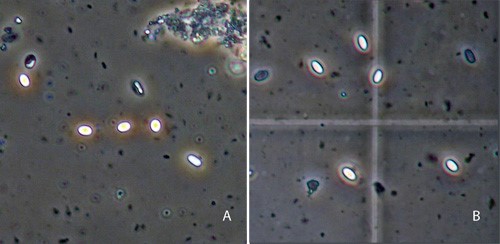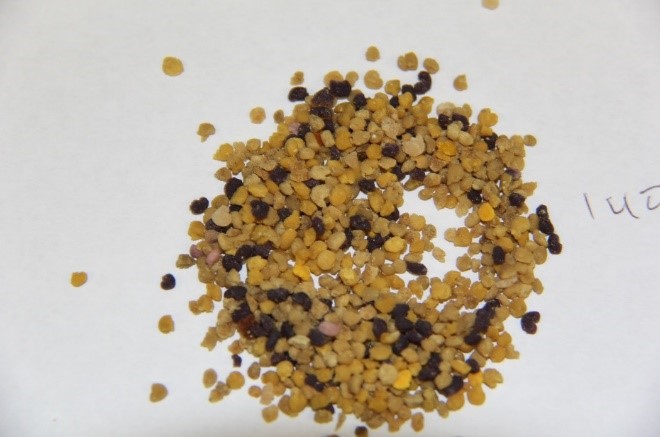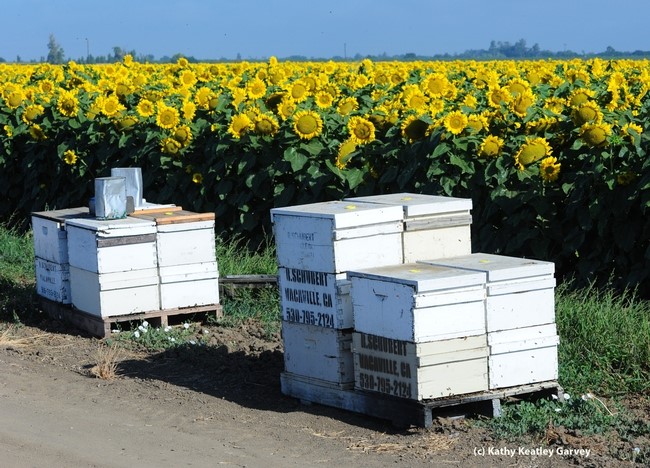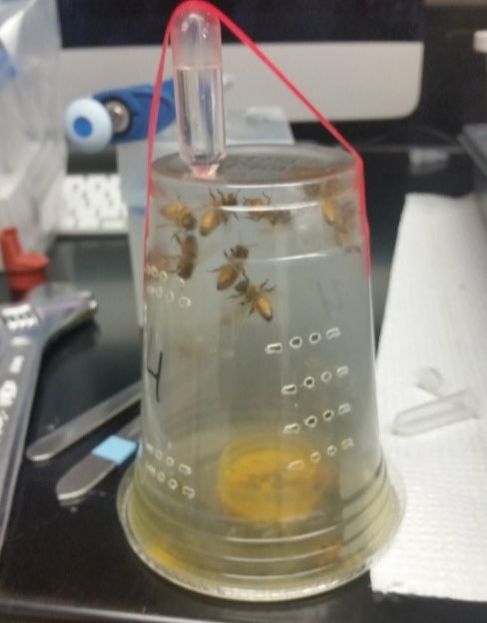|
Honey bees face a myriad of interacting stress factors including pesticide exposure and poor nutrition in intensive agricultural landscapes. Andrew Garavito spent his masters looking at how these factors interact in real-world landscapes to affect honey bee health. Comparing factors such as pollen diet, pesticide contamination of pollen, and drought stressing of pollen, he gained some interesting insights into what bees face on any given day in the field. Honey bees (Apis mellifera) are vital pollinators to many fruit, nut, and specialty crops1. Today they face a myriad of interacting threats to their health and success. From changing agricultural landscapes affecting bee nutrition to the risk of pesticide exposure2, it’s no wonder these little insects have seen increasing mortality rates over the past ten years3. Scientists all over the world, including Andrew Garavito (vanEngelsdorp lab, Bee Informed Partnership (BIP), have taken up the cause of bettering bee health. Much is known about how nutrition and pesticides affect bees separately, but Andrew is interested in their effects when interacting with each other and with other stressors such as drought. His research focuses on real-world situations that bees face, working directly with beekeepers to find tools to help protect them.
One would expect pesticides to increase stress on the bee and thus increase Nosema infection2, but no significant difference was found between bees fed pollen with or without pesticides. The same was true for bees fed a more diverse diet vs. a diet of only one type of pollen. Bees with a diverse diet of varying amino acids and nutrients would also be expected to better combat Nosema infection4, but diet variety did not appear to have an effect on Nosema infection. Andrew attributes these results to his hypothesis that Nosema replicates better in a strong, healthy host so that sick bees don’t support as high of Nosema levels.
To put his hypothesis to the test, Andrew planted two types of sunflower seeds: those untreated with pesticides and those treated with a seed coating of one neonicotinoid pesticide and three fungicides. Pesticides used in seed treatments are systemic and thus affect all parts of the plant, including the pollen the bees forage on. The sunflowers were grown under three watering regimens: well-watered, moderately drought stressed, and severely drought stressed. Resulting pollen was fed to bees who were either infected with Nosema or were not (Figure 4). In this way, Andrew could differentiate whether honey bees were more stressed by pesticide exposed pollen, and by drought stressed pollen.
an effect. The consequences of pesticide exposure increase in drought and are eventually overridden by the effect of drought on the pollen. Andrew’s work shows us that while we know much about honey bees and factors they face, there is still much to learn about how these factors interact. Honey bees are very complex social organisms and they continue to surprise us with how they handle their multitude of stressors.
References: 1. Morse, R. A., & Calderone, N. W. (2000). The value of honey bees as pollinators of US crops in 2000. Bee Culture, 128(3), 1-15. 2. Pettis, J. S., Lichtenberg, E. M., Andree, M., Stitzinger, J., & Rose, R. (2013). Crop pollination exposes honey bees to pesticides which alters their susceptibility to the gut pathogen Nosema ceranae. PloS one, 8(7), e70182. 3. vanEngelsdorp, D., Underwood, R., Caron, D., & Hayes Jr, J. (2007). Estimate of managed colony losses in the winter of 2006-2007: A report commissioned by the Apiary Inspectors of America. American Bee Journal, 147(7), 599-603. 4. Di Pasquale, G., Salignon, M., Le Conte, Y., Belzunces, L. P., Decourtye, A., Kretzschmar, A., ... & Alaux, C. (2013). Influence of pollen nutrition on honey bee health: do pollen quality and diversity matter? PloS one, 8(8), e72016. About the Author: Kelly Kulhanek is a PhD student in the vanEngelsdorp bee lab. She is studying the effect of beekeeper management practices on honey bee colony health and survival. Comments are closed.
|
Categories
All
Archives
June 2024
|
Department of Entomology
University of Maryland
4112 Plant Sciences Building
College Park, MD 20742-4454
USA
Telephone: 301.405.3911
Fax: 301.314.9290
University of Maryland
4112 Plant Sciences Building
College Park, MD 20742-4454
USA
Telephone: 301.405.3911
Fax: 301.314.9290





 RSS Feed
RSS Feed




